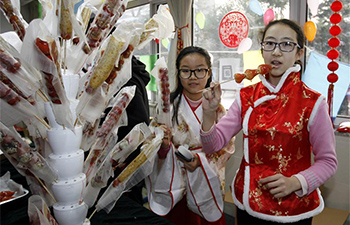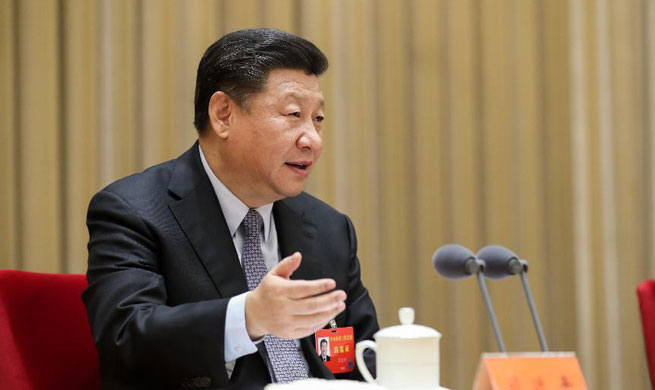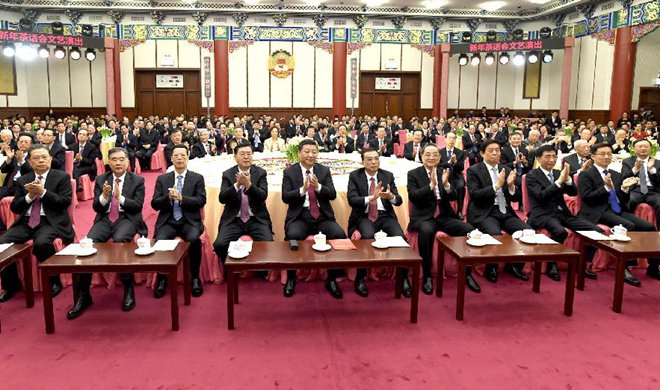HANGZHOU, Dec. 30 (Xinhua) -- Pang Baogen, an entrepreneur from east China, has emptied billions of cash on account into investment projects.
Over the past year, Pang, president of Baoye Group, a construction company based in Zhejiang province, has been busy. Soon after a 1.5-billion-yuan (230 million U.S. dollars) prefabricated smart construction project landed in the province's Anji county, he flew to central China's Hubei province to inspect the construction site of a manufacturing base he had invested in.
Just a year ago, Pang, who has invested in the construction industry for over 20 years, was troubled by where to spend his money.
For some private entrepreneurs in China, 2016 was a nightmare. A sluggish economy forced them to hold their money.
According to official statistics, China's private-sector fixed-asset investment (FAI) increased by a mere 2.8 percent in the first half of 2016, compared with 10.1 percent in 2015.
In the second half of 2016, favorable policies were introduced by China's central government to streamline investment project approvals for private investors, encourage them to participate in major projects and introduce mixed-ownership reform in state-owned enterprises.
The National Development and Reform Commission (NDRC), China's top economic planner, said in June it would further ease entry limitations for sectors including civil airports, basic telecommunication services as well as petroleum and gas exploration and exploitation.
In a guideline jointly released by 16 government departments, authorities were advised to further cut corporate burdens, improve public services and increase fiscal support for the private sector.
Wingtech Communications, an ODM (original designed manufacturer) for brands such as Huawei, Xiaomi and Lenovo, has been a beneficiary.
"We were supposed to pay 7.99 million yuan in water infrastructure funds based on our sales revenue, but the item was canceled, which enabled us to invest more in new product and technology development," said Vice President Xiao Xuebing.
According to the National Bureau of Statistics, FAI by the private sector grew 5.7 percent to 34.81 trillion yuan from January to November, with year-on-year growth even reaching 7.7 percent in the first quarter.
Experts also pointed out that China's FAI continued to see structural improvement as high investment growth was recorded in fields such as high-tech and emerging industries, while investment in sectors with excess capacity went down.
The Center for China in the World Economy of Tsinghua University said that China's FAI by the private sector will see a considerable rise from a predicted 6 percent in 2017 to 8 percent or even higher in 2018.
The private sector accounts for more than 60 percent of China's GDP growth and provides over 80 percent of jobs.

















